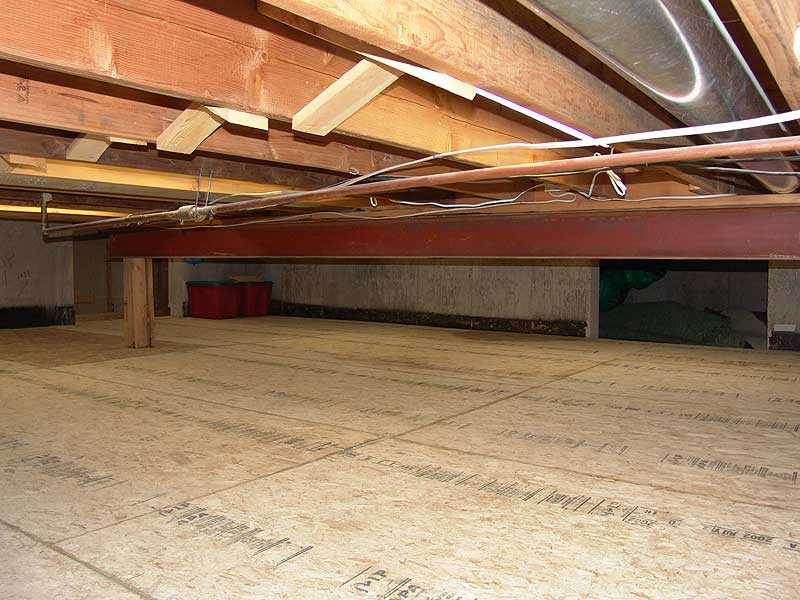
Wood Flooring For Basements
Basement floors are a focal point for moisture despite the efforts to protect the room. It makes sense and is best practice to avoid using certain materials in constructing your basement floor. Wood is an obvious choice for many floors, however even when it is treated for moisture and water resistance and no matter how well it is maintained, wood will eventually succumb to the adverse effects of water.

Because the basement is a room underground, you will find that you will constantly get problems with moisture, mildew and a damp smell - but there are ways of getting around this with proper basement flooring ideas. The ceiling and walling, of course, you need to look at but the flooring is a huge consideration, so here are some basement flooring ideas.

For basement flooring ideas, carpeting is usually not the best choice. It may be a choice if the room is properly ventilated and insulated, but in general it's not the best choice. A carpet can be a wonderful place for germs, especially in humid environments.

Basement floor clear need to consider the aesthetics while combat and prevent damage by water. Concrete floors can provide an effective water barrier, especially if handled and sealed and carry anti-fungicidal additives to ensure that mold and mildew do not find the house, however, bare concrete material hardly warm, comfort-stirring to see and walk on.

Slate is a fantastic material to build the basement floors (and walls) because it is a completely natural product. It provides color variation between olive green and brown, with a variety of texture and grain appearance so that no two tiles will be the same slate. Slate is also completely proof and waterproof, plus it does not provide a natural habitat or food source for fungi and mold. Also, when it becomes wet, slate is a non-slip surface which adds a safety factor.

Hard or non-porous ceramic that is also suitable for use in the basement floor. Hard to use and relatively easy to install, and provided it is non-porous, providing a good water barrier. Ceramic tiles also come in a wide range of colors and styles for man-made and can effectively adjust your basement decor and style. ceramic tiles do not have many flaws in it will become slippery and dangerous when wet.

Vinyl and linoleum floor also provides an effective water barrier for the ground floor and most are not affected by the impact of the water. Water may have an impact on the adhesive used to fix the floor, so that they will be affixed to the floor must be completely dry for a good seal and fit. Vinyl tiles have the added advantage that they are very cheap to source and install, although they do not give the same look and feel as slate or tile floor.

Wood Flooring For Basements
